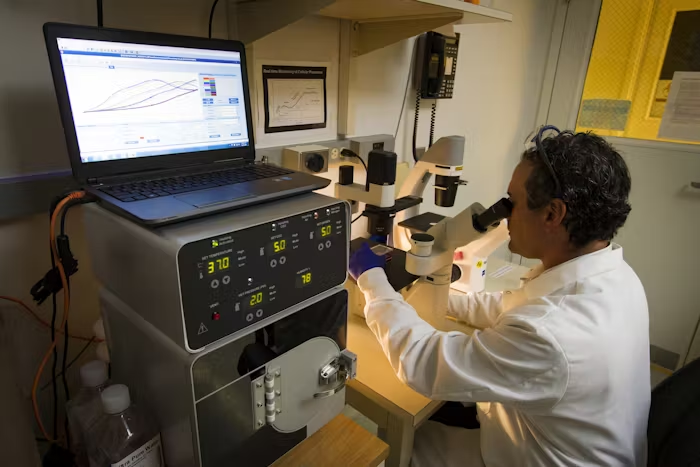In recent years, machine learning (ML) has emerged as one of the most transformative technologies in healthcare. From enhancing diagnostics to personalizing treatment plans, ML is revolutionizing how medical professionals deliver care. As the healthcare industry faces challenges such as increasing patient loads and rising costs, machine learning offers powerful tools to improve efficiency, accuracy, and outcomes.
This article dives deep into how machine learning is reshaping healthcare, its applications, and the potential challenges, providing a comprehensive guide to understanding this innovative technology.
What is Machine Learning in Healthcare?
Machine learning is a subset of artificial intelligence (AI) that enables computers to learn and make decisions without being explicitly programmed. In healthcare, it involves training algorithms to recognize patterns in medical data, such as imaging scans, patient records, or genetic information, and using these patterns to make predictions or recommendations.
By leveraging vast amounts of data, ML helps healthcare professionals:
- Analyze complex datasets.
- Identify trends and anomalies.
- Provide insights that improve patient outcomes.

How Machine Learning is Transforming Healthcare
1. Improved Diagnostics
Accurate and timely diagnosis is critical in healthcare. Machine learning has shown remarkable potential in diagnosing diseases, often outperforming human clinicians in specific areas.
Examples:
- Medical Imaging: ML algorithms analyze X-rays, MRIs, and CT scans to detect abnormalities such as tumors, fractures, or infections. For instance, Google Health developed an AI model that detects breast cancer in mammograms with greater accuracy than radiologists.
- Pathology: Digital pathology tools powered by ML can identify cancerous cells in biopsies faster and more accurately than traditional methods.
By reducing diagnostic errors, ML not only saves lives but also minimizes unnecessary treatments and associated costs.
2. Personalized Medicine
Machine learning is paving the way for personalized medicine, where treatments are tailored to individual patients based on their genetic makeup, lifestyle, and medical history.
Applications:
- Drug Development: ML accelerates the discovery of new drugs by identifying potential compounds and predicting their effectiveness. For example, IBM Watson uses ML to analyze clinical trial data and recommend treatment options.
- Genomics: ML algorithms analyze DNA sequences to identify genetic markers associated with diseases, enabling early intervention and prevention strategies.
This individualized approach improves treatment efficacy and reduces the risk of adverse effects.
3. Predictive Analytics in Patient Care
Predictive analytics uses machine learning to forecast patient outcomes based on historical data. By identifying risks early, healthcare providers can take preventive measures.
Real-World Use Cases:
- Hospital Readmissions: ML models predict which patients are at risk of readmission, allowing doctors to intervene with targeted care plans.
- Sepsis Detection: Algorithms like Epic Sepsis Model predict sepsis risk in hospitalized patients, enabling timely treatment and reducing mortality rates.
- Chronic Disease Management: ML helps monitor conditions like diabetes, hypertension, and heart disease, suggesting personalized interventions to improve patient health.
4. Enhancing Operational Efficiency
Healthcare organizations face mounting pressure to optimize resources and reduce costs. Machine learning offers solutions to streamline operations:
- Resource Allocation: Predictive models forecast patient admission rates, helping hospitals manage staffing and bed availability.
- Supply Chain Optimization: ML tools analyze inventory and consumption patterns to minimize waste and ensure timely delivery of medical supplies.
- Administrative Automation: Natural language processing (NLP) algorithms automate tasks like medical transcription, coding, and billing, saving time for healthcare providers.
5. Virtual Health Assistants
Virtual assistants powered by ML are transforming patient engagement by providing 24/7 support. These tools:
- Answer common medical questions.
- Schedule appointments and send reminders.
- Monitor symptoms and recommend next steps.
Popular examples include apps like Ada Health and Babylon Health, which guide users through symptom checks and provide actionable advice based on AI analysis.
Breakthroughs in Machine Learning: Pioneering the Future
Natural Language Processing (NLP)
NLP enables machines to understand and interpret human language, making it invaluable in healthcare:
- Medical Records Analysis: NLP extracts insights from unstructured data, such as doctors’ notes, making patient records more actionable.
- Clinical Trial Matching: ML algorithms match patients with appropriate clinical trials by analyzing eligibility criteria and patient data.
Reinforcement Learning
Reinforcement learning, where algorithms learn through trial and error, has applications in dynamic decision-making, such as optimizing chemotherapy regimens or designing robotic surgery systems.
Deep Learning
Deep learning, a subset of ML, mimics the neural networks of the human brain to analyze highly complex data. In healthcare, deep learning is used for:
- Image recognition in diagnostics.
- Predicting disease progression.
- Advancing drug discovery.
Challenges of Machine Learning in Healthcare
While the potential of machine learning is immense, its adoption is not without challenges:
1. Data Privacy and Security
Healthcare data is highly sensitive, and ensuring its protection is paramount. ML models require large datasets, which raises concerns about:
- Patient Consent: Ensuring data is used ethically and with patient approval.
- Cybersecurity Risks: Safeguarding ML systems from data breaches or malicious attacks.
2. Data Quality and Bias
For ML algorithms to deliver accurate results, they need high-quality, unbiased data. Challenges include:
- Incomplete Records: Missing or inconsistent data can affect model accuracy.
- Bias in Training Data: If datasets are not diverse, ML models may perpetuate inequalities in healthcare delivery.
3. Integration with Existing Systems
Integrating ML tools into existing healthcare infrastructure can be complex and costly. Providers need to:
- Train staff to use ML-driven systems.
- Ensure compatibility with electronic health record (EHR) platforms.
4. Ethical Concerns
The use of machine learning in healthcare raises ethical questions, such as:
- Should AI decisions be fully trusted, or should human oversight remain mandatory?
- How do we ensure transparency in ML algorithms to avoid “black box” decision-making?
The Future of Machine Learning in Healthcare
The journey of machine learning in healthcare is just beginning. Emerging trends and innovations promise to expand its impact:
1. Real-Time Health Monitoring
Wearable devices powered by ML will provide continuous monitoring of vital signs, enabling early detection of conditions like atrial fibrillation or sleep apnea.
2. Global Health Applications
Machine learning will play a critical role in addressing healthcare challenges in low-resource settings by:
- Enhancing telemedicine platforms.
- Supporting disease surveillance and outbreak prediction.
3. Collaborative AI Models
Federated learning allows multiple institutions to collaborate on ML models without sharing sensitive data, ensuring privacy while enhancing algorithm performance.
4. AI-Driven Drug Repurposing
ML will continue to accelerate the discovery of new uses for existing drugs, as seen during the COVID-19 pandemic.
Machine learning is revolutionizing healthcare by making it more predictive, personalized, and efficient. From improving diagnostics and treatment to streamlining operations, ML is addressing some of the most pressing challenges in modern medicine.
However, realizing its full potential requires addressing challenges such as data privacy, integration hurdles, and ethical concerns. By fostering collaboration among tech developers, healthcare providers, and regulators, we can harness the power of machine learning to create a healthier future for all.
The question is no longer whether machine learning will transform healthcare but how quickly and effectively it can overcome barriers to deliver its immense promise.














